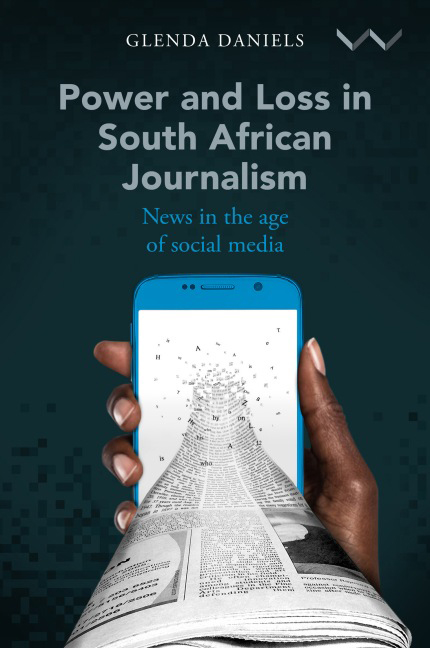Book contents
- Frontmatter
- Dedication
- Contents
- Tables and Figures
- Preface
- Acknowledgements
- Acronyms and Abbreviations
- 1 Power and Subjection in the Media Landscape
- 2 The Media, the State and Zuma’s ANC
- 3 ‘Zupta’: Power and Loss in Investigative Journalism
- 4 The Job Loss Tsunami
- 5 Going Online When You’re Offline: The Case of Community Media
- 6 The Anti-Feminist Backlash, the Glass Ceiling and Online Trolls
- 7 Decolonial ‘Green Shoots’
- 8 Power, Loss and Reimagining Journalism
- Epilogue
- Appendices
- Appendix A Press Code of Ethics and Conduct for South African Print and Online Media (effective from 1 January 2016)
- Appendix B amaBhungane Stories in the Past Two or Three Years
- Notes
- Glossary
- Bibliography
- Index
7 - Decolonial ‘Green Shoots’
Published online by Cambridge University Press: 10 September 2020
- Frontmatter
- Dedication
- Contents
- Tables and Figures
- Preface
- Acknowledgements
- Acronyms and Abbreviations
- 1 Power and Subjection in the Media Landscape
- 2 The Media, the State and Zuma’s ANC
- 3 ‘Zupta’: Power and Loss in Investigative Journalism
- 4 The Job Loss Tsunami
- 5 Going Online When You’re Offline: The Case of Community Media
- 6 The Anti-Feminist Backlash, the Glass Ceiling and Online Trolls
- 7 Decolonial ‘Green Shoots’
- 8 Power, Loss and Reimagining Journalism
- Epilogue
- Appendices
- Appendix A Press Code of Ethics and Conduct for South African Print and Online Media (effective from 1 January 2016)
- Appendix B amaBhungane Stories in the Past Two or Three Years
- Notes
- Glossary
- Bibliography
- Index
Summary
In a way, as modern subjects, we breath coloniality all the time and every day.
Nelson Maldonado-Torres, ‘On the Coloniality of Being’The media has power to think and act beyond the norms of everyday mainstream culture and thinking which would include, for example, the high value placed on middle- and upper-class thinking, speaking English, whiteness, maleness, heteronormativity, celebrity celebration, and more accumulation for the already wealthy. The media can also think and act beyond today's hysterical focus on more content on more platforms, chasing social media, more shiny new innovations, and the focus on combating ‘fake’ news which has always been in existence as misinformation, disinformation and political propaganda – but which is more serious than ever before in the digital age. In other words, journalists can use their media spaces to go beyond being reactive and combating the negatives, over-engaging on social media in ‘Twars’ (Twitter wars) and then enjoying the excess that comes with this: celebrity profiles and ‘influencers’ in that more exclusive rather than inclusive space.
In this chapter I examine whether there are new signs – or green shoots – in South Africa's media, beyond the breathing of colonialities’ norms. The analysis here uses decolonial theory to peruse stories on black hair – as well as an examination of some new start-ups and investigative units – to examine if there are signs of detachments from past norms, from the usual liberal thinking in mainstream media. Mainstream media's treatment of the marginalised has been examined by other scholars, for example, Herman Wasserman on issues of listening and audiences, and Sarah Chiumbu on how journalists frame social justice issues. Journalists are almost always found wanting.
The theoretical argument here is also that black consciousness can exist in tandem with the ‘decolonial turn’, which is a shift in knowledge production to refocus the gaze that can render the invisible visible – indeed can bring the invisible to the centre. Black consciousness, like decolonial theory, argues to bring the damnés, or the wretched of the earth, to the centre. In this case and in most cases in the global South, it is blackness and woman that intersect with poverty, that constitute the wretched of the earth – for instance, the old woman on television (eNCA) in January 2019, who said: ‘I have never seen water come out of a tap’. This, the bringing of the damnés into the centre, requires interventions of power.
- Type
- Chapter
- Information
- Power and Loss in South African JournalismNews in the Age of Social Media, pp. 133 - 152Publisher: Wits University PressPrint publication year: 2020



